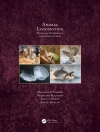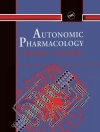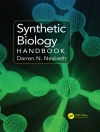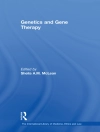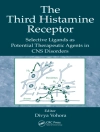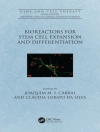This book offers a systematic review of the cutting-edge knowledge in stress medicine. Cellular redox imbalance, resulting from overproduction of reactive oxide species (ROS), leads to oxidative stress and subsequent occurrence and development of many diseases, such as cancer, diabetes, pain, etc. In addition, ROS can induce post-translational modification of proteins and play roles through redox signaling pathways. In this book, the authors attempt to re-define the key concepts in oxidative stress, such as oxidative eustress and oxidative distress, revisit the pivotal signaling of oxidative stress in human diseases, and discuss the debate in current anti-oxidant strategies, such as natural products and drug repurposing. This book serves as a reference to graduate students and researchers in this growing field.
Mục lục
Oxidative stress and anti-oxidant strategies in human diseases.- Oxidative stress in the tumorimmune microenvironment.- Oxidative stress-mediated stem cell aging.- Stress proteins: Biological functions, human diseases and virus infections.- Importance of mitochondrial quality controls in Parkinson’s disease: the potential interplay of mitochondrial unfolded protein response and mitophagy.- Autophagy in cellular stress responses.- Cysteine metabolism in cancer progression and therapy resistance.- Stress and circadians.- ROS, glucose and lipid metabolism.- Drug repurposing: An avenue towards stress medicine in cancer therapy.- Redox regulation of metabolic enzymes in cancer.- Stress and inflammation.- Oxidative stress in cell signaling and cell fate determination under glucose starvation.
Giới thiệu về tác giả
Prof. Canhua Huang received his Ph D degree from the Chinese Academy of Sciences in 2000. After accomplishing completinghis postdoctoral research in at the National University of Singapore, he was hired as a Rresearch Sscientist of by Oncology Research Institute, National University of Singapore, in 2003. He was then appointed as a Pprofessor of atthe State Key Laboratory of Biotherapy, West China Hospital, Sichuan University, in 2005, and has been the dean of West China School of Basic Medical Sciences & Forensic Medicine, Sichuan University, since 2017. Prof. Huanghas published more than 120 papers in international academic journals, including Gastroenterology, Nat Microbiol, Nat Commun, J Hepatol, Autophagy In addition, he was invited to publish review articles on international journals including Trends Biochem Sci, Mass Spectrom Rev and Expert Rev Proteomic, etc. Besides, he Prof. Huanghas served asan executive editor of Anal Biochem, associate editor of Med Comm, and editorial board member of Proteomics and Signal Transduct Target Ther.
Dr. Yuan-Yuan Zhang received her bachelor’s degree from China Pharmaceutical University in 2001, and her doctor’s degree from the Chinese Academy of Sciences in 2006. After working at Hong Kong University for one ayear, she joined Fudan University in 2007. Then, she moved to Sichuan University in 2010, and was promoted as associate professor in 2012. As a visiting scholar, she spent one 1year at the University of Pennsylvania from 2016 to 2017. She Dr. Zhangis dedicated to elucidating redox signaling in cancer, metabolic diseases, and skin wound healing. She has published 37 articles in English and Chinese academic journals including some high-impact journals such as Redox Biology, Theranostics, Alimentary Pharmacology & Therapeutics, etc. She Dr. Zhangis an editor-in-chief of Medical Research & Publication and a scientific editor of Journal of Clinical and Translational Hepatology. She is an expert and inspiring lecturer in scientific writing, and has published a book entitled “A comprehensive guide to English medical manuscript writing and publication”.


